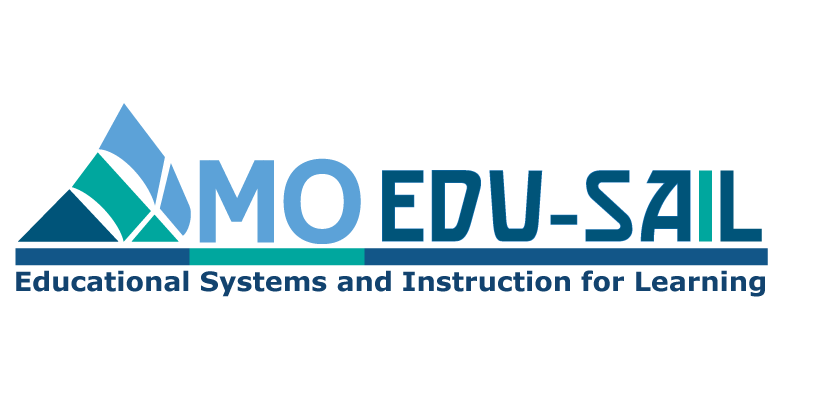DCI Practices
Increasing Student Involvement & Ownership in the Learning Process
Mark Clements
Together we will examine a variety of practical, successful ways to engage students in self-assessment and increase ownership in the learning process. Ideas to be shared are adaptable to any age level or content area and are selected for their ease of implementation.
Where Do The Pieces Fit In The DCI Framework?
Marsha Smith & Bruce Hunter
During this session, we will demonstrate a process for implementing the following components to increase rigor in the classroom: Priority/Supporting Standards, Learning Targets, Success Criteria, CFA’s, DBDM, DACL. There is a systematic approach. If you need a method to the madness, our session is for you! Intended audience: Teachers, Building Level Administrators, District Level Administrators.
Tools for the DCI Framework: The Blueprint, Step-by-Step Guide, Administrators Guide to Coaching DCI In Action, and Infographics Guide
Cheryle Winkle & Jeff Freeland
We will “explore” these invaluable guides as your team begins or deepens implementation of the DCI work. Their content is well-organized and illustrated to highlight major components, describe effective implementation, and ways to self-assess progress and growth. You won’t lose your way with these documents in hand! Intended Audience: Teachers, Building Level Administrators, District Level Administrators.
Getting Acquainted with Coaching Companions
Sarah Marten
Learn about a valuable tool that can help support training, coaching, and enhance learning for all educators. Discover the many resources that can be accessed in the Coaching Companions and learn how to quickly find what you need. Intended audience:Teachers, Building Level Administrators, District Level Administrators
Calhoun’s DCI Journey
Cheryl Wrinkle
Discuss how Calhoun was able to quickly and successfully move through the foundational pieces of the DCI framework. Intended audience: Building Level Administrators, District Level Administrators
What is Best For Kids Midcourse Corrections
Kate Jaspering
The kindergarten team will discuss a snapshot of their PLT journey. This includes glows, grows, and honest reflection which led to many powerful dialogues. When realizing the power of midcourse corrections, decisions are intentional and are always in the best interest of students. Intended Audience: Teachers, Building…
Thinking about Collective Teacher Efficacy
Carla Williams
With it’s recognized impact on teacher practice and student outcomes, CTE is proven to show change in schools. Come to this session to learn more about CTE, the learning module, and where to start. This learning module is designed to meet schools where they are at and customize the training accordingly and this marketplace will overview that process. Intended Audience: Teachers, Building Level Administrators, District Level Administrators.
Are you including the Elective, Encore, and or Specials teachers in the CFA and DBDM process? Let’s Zoom about it!
Dr Ted Huff
We will discuss the importance of taking the elective teachers through the CFA and DBDM process. It will include a Q&A segment as well as a “Share Out” segment for teachers, school leaders and consultants to celebrate the work they are doing in this area. Intended audience: Teachers, Building Level Administrators, District Level Administrators.
Practice Profiles: A Clear & Common Focus
Julie Germann
Clear targets are essential to hitting the mark! Learn more about how using the practice profiles can grow efficacy and accountability across your buildings and district-wide. Intended audience: Teachers, Building Level Administrators, District Level Administrators.
Common Formative Assessment
John Schuler & Betsy Ridenhour
This video introduces the process, benefits, and importance of Common Formative Assessment (CFA). In addition, the connections of CFA to Missouri Learning Standards and what CFA looks like in practice are shared. Finally, information is given on how your Coaching Support Team consultant can help as well as some reflective questions to consider.
Developing Assessment Capable Learners
Pat Johnson
The Developing Assessment Capable Learners video provides an overview of how teachers can support students in becoming reflective learners. Students who are Assessment Capable Learners are accountable for their own progress and become motivated, effective, self-regulating learners. They understand what they are supposed to learn, monitor their own progress, set goals, and reflect on their learning.
School-Based Implementation Coaching (SBIC)
Jeff Freeland
School-Based Implementation Coaching (SBIC) helps educators demonstrate new skills, as well as practice using those skills in real classroom settings, while also improving fidelity of practice. This module is designed to help districts and buildings understand the essential functions within the Professional Learning Module (PLM) and determine whether SBIC is the direction they are ready to take.
Metacognition
Marcia Clark
Metacognition 101 – What is Metacognition? What does the research say? Am I modeling and engaging students in their thinking? This overview of Metacognition will get you thinking about little (and no cost!) tips that equal big impact for students!

